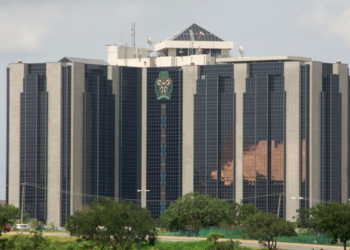Recent data suggest that the Central Bank of Nigeria (CBN) has been lagging in its drive to achieve 80% financial inclusion in Nigeria. In order to achieve its objectives, the CBN had introduced several measures including a revision of the Microfinance Banking regulation, the introduction of Agent Banking, Tiered Know Your Customer requirements, and Mobile Money Operations. All these measures appear not to have achieved its desired outcome.
Industry watchers suggested that the CBN should take the bull by the horn by allowing Mobile Network Operators to provide banking services as in the case of the m-Pesa Miracle in Kenya. However, knowing the leanings of the Nigerian Banking Regulator, the CBN will not allow the MNOs to eat the Banks’ own lunch. In essence, the CBN will protect the banks to the detriment of its financial inclusion objective.
The stats are clear, the MNOs have been able to connect over 100 million Nigerians in less than 10 years, while the banks (Since 1894) have only achieved about 30 million unique customers (including corporate accounts). It is also important to mention that only 4 Telcos achieved this feat, while over 20 banks today have not been able to achieve half of what the MNOs have done. This stat does not include over 1,000 Microfinance Banks.
The CBN’s Body Language
The CBN’s body language is clear, especially with recent comments regarding regulating the Financial Technology space. Ironically, my last article called for the regulation of some technology businesses that appear to be providing investment opportunities to the public. Why, should I then be against the regulation of Fintechs? I am not against their regulation, I am only saying that the CBN appears to be taking a combative approach to regulation, all with the intention of protecting the incumbents.
Statements credited to the CBN Governor, Godwin Emefiele, in his goodwill message at the investiture of the CIBN’s 20th President and chairman of the council in Lagos on Saturday, said, “In our industry, we have a common threat. The enterprise management risk, particularly the threat posed by Fintech, is real.” The CBN governor, who was represented by the Deputy Governor in charge of Economic Policy Directorate, Dr Okwu Nnana, said, “I call on the CIBN to be at the forefront of sensitisation of the banking industry on the real threat posed by Fintech in the industry.” He urged the institute to make advocacy its major focus and proffer solution to the threat posed by Fintech.
Let’s be clear, allowing MNOs lead financial inclusion drive is not the only way to achieve high financial inclusion among the adult population. India and China were able to achieve >80% financial inclusion without active participation from MNOs. But I am not sure you can achieve >80% financial inclusion when you detest financial technology.
Based on its antecedents, the CBN has to a large extent proven that it is not FULLY committed to achieving its own self-imposed financial inclusion target. Hence, my pessimism about this new move. The CBN appears to be copying the Financial Inclusion model from India through the introduction of the Payment Service Bank.
What is the Payment Service Bank?
According to the CBN draft regulation, the PSBs are to leverage mobile and digital services to enhance financial inclusion and stimulate economic activities at the grassroots through the provision of financial services. The PSBs will enable high volume low-value transaction in remittance services, micro savings and withdrawal services in a secured technology-driven environment.
The key objective to setting up the PSB is to drive financial inclusion in the rural areas by increasing access to deposit products, payment/remittance services to small businesses, low-income households and other entities.
PSB Permissible Activities
- Maintain a savings account and accept deposits from individuals and small businesses which shall be covered by the Nigerian Deposit Insurance Scheme.
- Establish ATMs in some of these areas.
- Carry out payment and remittance services (including inbound cross-border remittances) through various channels within Nigeria.
- Issue debit and prepaid cards.
- Operate an electronic purse (wallet).
- Invest in Federal Government and CBN issued securities.
- Any other business prescribed by the CBN.
Non-Permissible Activities
- Grant any form of loan, credit or guarantee.
- Trade in the Foreign Exchange market.
- Insurance Underwriting.
Eligible Promoters
- Banking Agents.
- Mobile Network Operators (operating through subsidiaries).
- Retail Chains (Supermarkets).
- Mobile Money Operators.
Licensing Requirement (Capital)
- Non-Refundable Application Fee – N500,000 (Five hundred thousand Naira).
- Non-Refundable Licencing Fees – N2,000,000 (Two Million Naira).
- Minimum Capital Requirement – N5,000,000,000 (Five Billion Naira).
Others
- 10% Capital Adequacy Ratio (CAR).
- Maintain nothing less than 75% of deposit in treasury bills.
- Have access to the CBN window.
- All other funds in excess of operational float be placed with a commercial bank.
My View
- A bank that CANNOT lend? The PSB is a bank the CANNOT lend, but requires N5 billion to set up. The bank cannot hold its own deposit but has to move it to one of the incumbents. The bank must also keep 75% of its deposit in treasury bills and FGN issued securities only. No state bonds, no corporate bonds, no commercial papers.
Why should anyone invest in a PSB? I can imagine what the return on Equity will look like. The truth is that I think N5 billion is too much capital to require for something lower than a rural bank (a rural bank can lend).
Additionally, the N5 billion is the minimum capital requirement. It means Shareholders’ Fund. Your first year of loss will affect your SHF, hence you will need to recapitalise. Or alternatively, raise much more than N5 billion initially.
- What does Rural Mean? The draft guideline says that the PSB will “operate mostly in rural and unbanked areas”, with not less than 50% physical access points in rural areas as defined by the CBN. The CBN reserves the right to determine what location is termed rural. Will Epe or Agbowa in Ikorodu be termed rural? Will tier 3 towns like Odogbolu, Ilesha, Ogbomoso, etc. be termed rural?
Conclusion
I will rather hold a National Microfinance Bank Licence with a N2 billion capital requirement, then partner with a commercial bank to grant me access to the CBN window. I will be able to issue cards and maintain ATMs in both rural and urban communities. I can leverage technology to drive financial inclusion. More importantly, I will be able to grant loans and still buy treasury bills, FGN bonds, commercial papers and corporate bonds.
Except the CBN wants the PSB to be a social enterprise, I think the regulation should be revised.













.gif)






